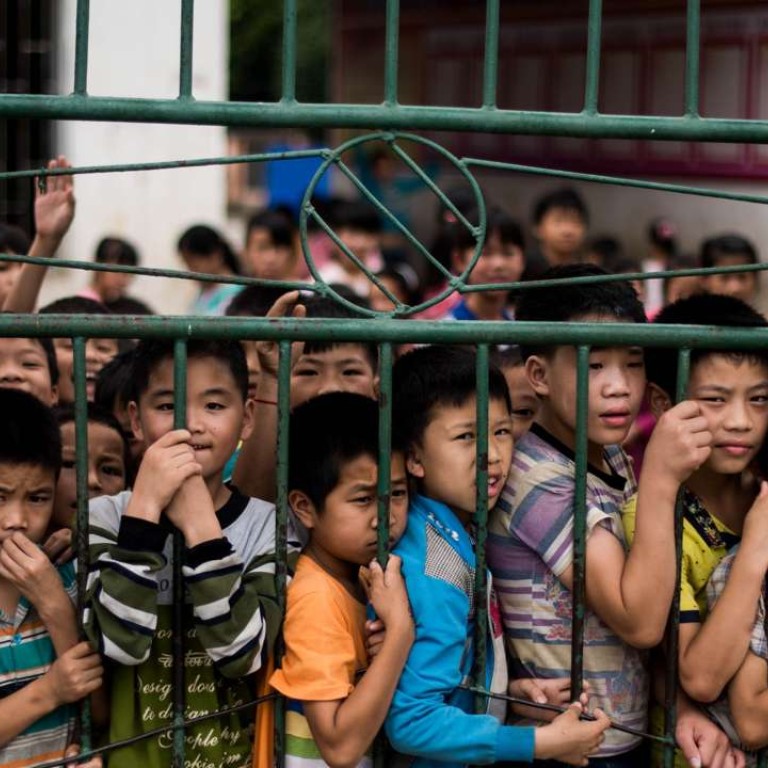
China has 61 million left-behind children ... that’s almost Britain’s total population
Sixty-one million children in China’s countryside – more than a third of those younger than 17 – are living without day-to-day care from their parents, the country’s latest government survey on internal migration has found.
These are China’s so-called “left-behind children”, who for most of the year do not see their migrant worker parents who have sought work in the coastal cities.
The 2016 migrant population survey by the National Health and Family Planning Commission, published on Thursday, provides hard data on one of the biggest human costs of China’s economic growth.
While Chinese cities need the labour of migrant workers, municipal authorities – especially big cities like Beijing – often deny their children essential services such as schooling and health care.
The low incomes and poor housing conditions of migrant workers make it all but impossible for children to accompany their parents to the cities.
China’s left-behind children, who number close to Britain’s total population, is now a massive social problem that has produced of a raft of tragedies that have shocked entire nation.

The problem of left-behind children is most severe in Anhui, Henan and Sichuan provinces, the key sources of migrant workers, where 44 per cent of rural children live without their mother or father. This is far higher than the national average of 35.6 per cent, the survey found.
The Chinese government realises the problem. In February, the State Council, China’s cabinet, issued a guideline to local authorities to improve the physical and psychological health of such children.
Separating children from their parents on a such massive scale, due to both economic and policy reasons, is one of the unintended consequences of China’s urbanisation in the past decades.
For instance, if a migrant worker couple were to enrol their child in a local school in Beijing, they must first submit dozens of residential and employment documents, a task beyond the reach of most migrant workers.
Last year, there were 247 million migrant workers across China aged an average of 29.3 years. While the group is younger than the national average, they are ageing more quickly – their average age was 27.9 in 2013.
Two-thirds of migrant workers earn between 2,000 yuan (HK$2,300) to 5,000 yuan a month. Only 5 per cent make more than 8,000 yuan a month. The men earn 4,500 yuan a month on average, but the average wage for women is 3,411 yuan, according to the survey.

